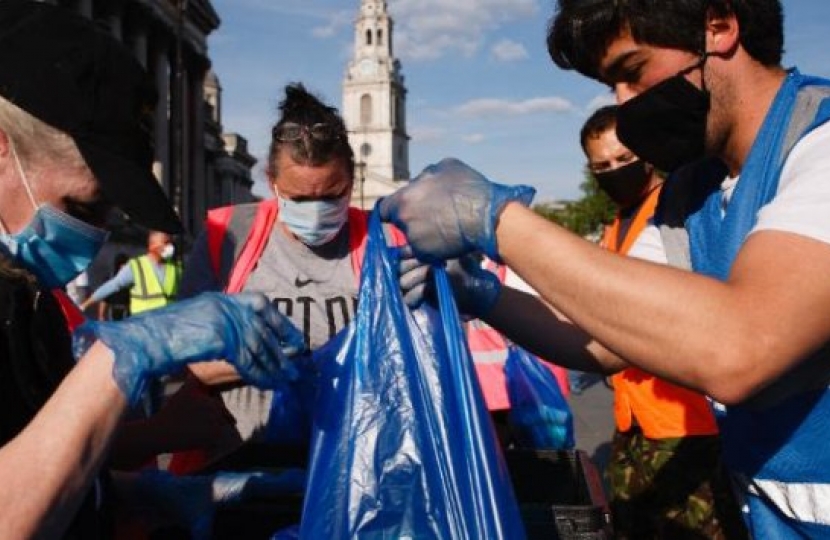
Nearly 97% of first-time volunteers questioned in a recent survey said that they would volunteer again. Creating the pathway and opening up opportunities for people to give their time would create a permanent army of volunteers, ready to get to work to help their communities.
The full national lockdown of the United Kingdom between March 23rd and July 4th was an unprecedented moment in British history.
Never before in peacetime have the British people been asked to stay at home and restrict their everyday fundamental freedoms in the way that they were after the arrival of Covid-19 on our shores. Overnight, packed offices became empty.
Bars, clubs and restaurants, normally bustling with young people, were deserted. Flights were cancelled, borders quickly closed. Time stood still. The message was simple: Stay Home, Protect the NHS, Save Lives.
At the time, the biggest global health emergency in living memory appeared to rip through communities, keeping people and families apart.
Looking back, there is a clear case for suggesting that the pandemic brought people together like nothing else has done since the end of the Second World War.
Whilst most of us were permitted one hour of exercise a day, as well as being able to shop for necessities, two million of our most vulnerable were given a clear instruction: do not leave your home.
These restrictions were met with the full financial firepower of the Treasury, including comprehensive packages to support people’s wages, their businesses, and their livelihoods. Nearly 10 million were furloughed, with 2.5 million making claims to cover self-employment income. Yet, the real story, as always in a time of crisis, was on the ground.
Covid Community Groups quickly appeared, with street champions offering to organise food and prescription deliveries for those who were completely cut off from the outside world. In our normally fast-paced, individualistic world, community spirit had returned once more.
Connecting Communities, a One Nation Conservatives Report, commissioned by Jo Gideon, Selaine Saxby and myself, aims to ascertain the real impact of the pandemic on communities, and whether this really is just a moment, or whether it is the beginning of something new.
In my fantastic local community of Watford, my own personal experience tells me that it is the latter.
We now have an opportunity to rebuild, to inaugurate a new society, a better society.
One-third of those asked said lockdown changed their view of the local community, with almost two-in-five people volunteering.
One respondent commented, “Before Corona, I felt mostly, people were out to please themselves, but Corona showed that a community can come together for each other.”
Going forward, the recommendations of the report set the stage for a new era of volunteering, and for this to happen we need fundamental change from top to bottom.
From the top, a Minister for Volunteering would cement this Government’s commitment to getting people out. NHS Cadets would build on the public appetite to help protect our most vulnerable.
Clapping for carers certainly meant well, and was appropriate for the time, but we need to channel that showing of support into real action. Nearly 97% of first-time volunteers questioned said that they would volunteer again.
Creating the pathway and opening up opportunities for people to give their time would create a permanent army of volunteers, ready to get to work to help their communities.
With the news of a vaccine being approved by regulators, the curtain appears to be finally closing on the greatest peacetime emergency that this country has ever faced.
We now have an opportunity to rebuild, to inaugurate a new society, a better society.
To quote the Prime Minister, and the new President-Elect of the United States, we must build back better.
Putting communities at the heart of that process will make for a greater Britain.
Dean Russell is Member of Parliament for Watford. His new paper for the One Nation Caucus, “Connecting Communities”, is available here


